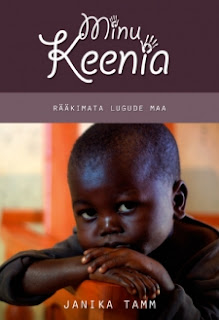Peace is not an absence of war,
it is a virtue, a state of
mind,
a disposition for benevolence,
confidence, justice.
Baruch Spinoza (1632 - 1677)
This is how my morning started.
Friend: Hey, how have you been?
Me: it has been a long week ....
Friend: I tell you, it wasn't exciting. Am glad we are peaceful
Me: peace is just on the faces, not in the hearts ... people's expression is suppressed, people are not given an outlet to vent
Friend: truly that's a good way of putting it. Majority of people are not happy
with the current results but we are all afraid of expressing our views,
am just hoping people will find ways of overcoming this issue before it
eventually explodes like in 2007
Kenya is right now a country that is trying hard to put out the smoke, trying to making everybody comfortable that there is no fire.
In fact, you can not mention the word FIRE without somebody quickly shouting "No fire in Kenya! Not this time around!" PEACE is key.
Independent Electoral and Boundaries Commission (IEBC) has had a generous budget for running infomercials. These were initially about voter registration, about voting and eventually they ended with "We will accept
the results. We will maintain Peace" Peace has been the bread and butter of many advertising agencies, civil society groups and NGOs. They seem to have done a good job. (Tense) peace has been the order of the day for the last one week, with virtually no outbreaks of violence. But has it crossed the line of what can be done, what is acceptable to achieve peace?
Acceptance of official results promotes peace. Really? Even if there are blaring irregularities in calculations, when the commission ignored faults in its systems? Freedom of speech, ability to ask questions, diversity of opinions are key to modern democracy. The
peace and acceptance messages actually have a anti-democratic strap line. The country has been subliminally
hypnotized to believe that Accepting results=Peace ...
The
red warning light for me was switched on when 2,700 comments, suddenly got deleted from one of IEBC's Facebook pages
on Saturday shortly after Raila's press conference. Yesterday Nation deleted an article with views of US president Obama with about one hundred published comments on it ... Decisions are made about what is safe for the population to hear and
what needs to be kept from people at large - they might not be able to
handle it .... GSU (FFU) patrolling the streets of Kisumu,
Kibera and Mathare ... While autocracy is required from time to time, we
just need to be conscious of it happening. We must acknowledge that
suppression of people's voices is a step off the usual track of
democracy.
In a heavily polarised country like Kenya, a level of maturity is needed. When people actually say "Only two groups celebrating the 'won election' this is not Kenya anymore", it must be take seriously. No matter what the outcome of the next few weeks, polarity will keep increasing, yet, unity in Kenya must be restored. In life we can not always have what we want. As adults we must learn how to deal with disappointments and how to move on. No matter what the outcome, there will be people who will be happy and there will be people who will be disappointed. Hence the need to start actively and strategically building unity NOW.
In a heavily polarised country like Kenya, a level of maturity is needed. When people actually say "Only two groups celebrating the 'won election' this is not Kenya anymore", it must be take seriously. No matter what the outcome of the next few weeks, polarity will keep increasing, yet, unity in Kenya must be restored. In life we can not always have what we want. As adults we must learn how to deal with disappointments and how to move on. No matter what the outcome, there will be people who will be happy and there will be people who will be disappointed. Hence the need to start actively and strategically building unity NOW.
 |
| Rwanda Genocide Archive |
Rwanda have done something right to feature as Most Likely to Feel Safe country in the world as measured in October last year. And the country where one is most likely to feel love!!! While it can be a great job by branding agencies, there has got to be something more to it!
Justice be our shield and defender
May we dwell in unity
Peace and liberty
Plenty be found within our borders.
May we dwell in unity
Peace and liberty
Plenty be found within our borders.
Justice comes first, even in the anthem. Followed by all good things in abundance!


